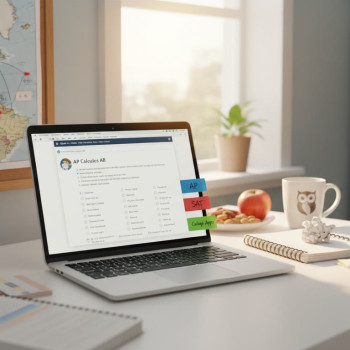Do Parents Need to Create College Board Accounts? Short Answer and Big Picture
If you’re a parent helping a high schooler prepare for the Digital SAT and the college application process, you probably have a dozen questions swirling in your head: Who should make an account? Who sees scores? How involved should I be? The short, practical answer is: parents do not strictly need their own College Board account for a student to register for or take the Digital SAT—but being connected through the student’s account, or having an account for certain administrative needs, can make the process easier, safer, and more collaborative.
This post is written for families: students who want independence and parents who want to support without taking over. We’ll walk through when to sign up, how accounts work, what parents can (and can’t) do, privacy and permissions, helpful features like Student Search Service and BigFuture, and sensible rules of engagement so your child’s college journey feels like a team effort instead of a tug-of-war.

What Exactly Is a College Board Account?
The College Board account is the single online identity students (and sometimes parents) use to: register for the SAT/PSAT/AP exams, access official score reports, use BigFuture college-planning tools, opt into Student Search Service, and view practice materials tied to their results. For the Digital SAT era, these accounts also centralize test details, score release notifications, and important communications.
Think of it as a student’s official education inbox: it holds test registrations, score reports, profile information (like high school and graduation year), and college interests. Because of that, how you set up and manage accounts matters—especially for privacy, score delivery, and college outreach.
Who Should Create an Account—and When?
Here are common scenarios and the best practices for each.
1. The Student (Always)
- Create a College Board account as soon as the student is old enough (13+), or when your school/college counselor recommends it.
- Students need their own account to register for the Digital SAT (unless registering through school-administered in-school testing) and to access score reports, personalized practice, and BigFuture tools.
- Having a student account preserves independence and ensures the student receives official communications directly.
2. Parents: Optional but Often Helpful
- If your student is comfortable sharing access, the student can add parent contact information inside their account so parents receive select emails (e.g., reminders, scholarship opportunities) without creating a separate account.
- Some parents create their own College Board/BigFuture accounts to stay informed, especially if they handle logistics like fee payments, score reporting, or college searches.
- For younger teens or families managing applications together, a parent account can be a practical tool for reminders and planning—provided access honors the student’s growing independence.
How Parents Can Be Involved Without Creating a Separate Account
Not everyone needs a full parent account. Here are low-friction ways parents can stay connected:
- Ask the student to add your email in the Account Settings so you’re CC’d on key messages.
- Work with the school counselor to receive information about test dates and score releases if the school administers tests in-house.
- Use shared documents or calendars (outside the College Board) to track registration deadlines, test dates, and application milestones.
When Parents Might Want Their Own Account
Create your own account if any of the following apply:
- You’ll be paying for registrations and want receipts linked to your email.
- Your child is younger or prefers you to handle logistics.
- You need to help with BigFuture planning tools, scholarship searches, or to receive Student Search Service notifications after the student invites you.
- You need to manage archived score requests or older administrative tasks that require a parent’s identity.
Privacy, Permissions, and Student Autonomy
This is the delicate, important part: the College Board values student privacy. Actual test scores, social security numbers, and phone numbers are not shared through outreach services like Student Search Service. Families should balance involvement with respect for the student’s ownership of their account.
Set a simple family policy early: who handles registrations, how passwords are shared (if at all), and what level of parental access is acceptable. A quick family conversation about boundaries can prevent stress later in senior year.
Understanding Student Search Service and BigFuture
Two features inside College Board accounts that often cause confusion are Student Search Service and BigFuture. Both are powerful tools—but optional.
- Student Search Service helps colleges and scholarship programs find and contact students who opt in. It does not share test scores or sensitive data like SSNs.
- BigFuture is a college-planning hub where students build college lists, search scholarships, and explore careers. Parents can be added to get some updates but don’t automatically see everything unless the student shares.
Should My Student Opt Into Student Search Service?
Generally yes—opting in increases exposure to scholarship and college opportunities and is free. However, families may choose to opt out for privacy or to avoid mail/email volume. It’s a personal call: weigh extra college contacts against the student’s preferences for outreach.
Practical How-To: Steps for Families
Below is a simple checklist to guide parents and students through account setup and sensible collaboration.
| Action | Who Does It | Why It Matters |
|---|---|---|
| Create student College Board account | Student | Needed to register for Digital SAT, access scores and practice |
| Enter parent contact in Account Settings | Student (with parent agreement) | Parents receive selected updates without full account access |
| Decide on Student Search Service | Student & Parent jointly | Increases college and scholarship outreach if opted in |
| Create parent account (optional) | Parent | Useful for administrative tasks, payments, and scholarship research |
| Set family account rules (password sharing, visibility) | Family | Keeps expectations clear and protects student privacy |
Real-World Examples: How Families Use Accounts
These short scenarios show how the same system can serve different needs.
Example 1: Independent Senior
Jamie, a senior, created their own account at 16, registers for the Digital SAT independently, and adds Mom’s email as a CC contact. Mom receives fee reminders and scholarship notices, but Jamie manages score sends and applications directly. Result: Jamie feels in control; Mom stays informed without micromanaging.
Example 2: Hands-On Family
The Garcia family prefers to plan together. Mom created her own College Board account, coordinates test payments, and sets calendar reminders. Dad helps build the BigFuture college list and compares scholarship opportunities with his teen. Result: shared workload, clear responsibilities, and fewer missed deadlines.
Example 3: School-Based Testing
Sam’s high school administers the Digital SAT during school hours. The school delivers scores to students and parents in standard ways, and Sam’s family uses BigFuture for college planning but doesn’t create a parental College Board account. Result: minimal account management, but the family still stays engaged through other planning tools.
Common Questions Parents Ask
Will I be able to see my child’s actual test scores if they add me as a parent contact?
Not necessarily. Adding a parent contact usually allows parents to receive selected emails and updates. Students control the sharing of detailed score reports and registration information. Respecting that control is key to building trust and independence.
Can parents register their child for the Digital SAT?
Yes—parents can register a student if they are helping with logistics. Many families do this, especially for younger students. Registration requires accurate student information and a College Board account for the registrant (or the student can register directly). If your school handles in-school testing, registration is often coordinated through the school.
What if my child has two accounts or an account created by the school?
Multiple accounts can complicate things. If scores or registrations don’t appear as expected, check whether the student has a different College Board account (for example, one created by a counselor). Consolidate or update account details to ensure scores and communications land in the right place.
How to Talk with Your Teen About Accounts and Boundaries
Conversations about accounts are as much about values as logistics. Use these simple tips:
- Start early and keep conversations factual and calm—explain why certain info needs to be shared and what stays private.
- Create a short family agreement: who pays for tests, who books appointments, and how passwords are handled.
- Encourage your teen to manage their account with your support rather than handing the whole process over to you. That fosters responsibility and confidence.
Where Personalized Tutoring Fits In
Accounts and registrations are one piece of the college puzzle. Tutoring—especially personalized, 1-on-1 guidance—helps students turn their potential into test performance and a compelling application. Services like Sparkl’s personalized tutoring can complement account management by providing tailored study plans, expert tutors who diagnose specific weaknesses, and AI-driven insights that track progress. This kind of targeted support often boosts scores and reduces test anxiety, making the whole account-and-application process less stressful.
Checklist: What to Do This Month (Practical Next Steps)
- If your student doesn’t have a College Board account yet, create one and complete the profile (name, email, high school, grad year).
- Decide whether the student will add a parent email or whether you’ll create a parent account for administrative tasks.
- Talk about Student Search Service: opt in or out together after discussing privacy and outreach.
- Mark upcoming Digital SAT dates on a shared calendar and plan two practice cycles before registering (one for strategy, one for timing).
- Consider personalized tutoring if your student wants targeted improvement—look for 1-on-1 options and a plan that tracks progress.
Quick Troubleshooting Guide
- Missing scores? Verify the student is signed into the correct account and that the test date matches their record.
- Registration confusion? Confirm whether the test was scheduled by the family, the school, or a third-party program.
- Too much outreach mail? Review Student Search and communications settings inside the student account to reduce messages.
Final Thoughts: Partnership, Not Permission
In the college journey, College Board accounts are tools—important ones—but they are not the heart of the process. The heart is conversation: coaching your teen gently, helping them build their list of schools that fit, and deciding together how much oversight feels right.
Parents don’t have to create accounts to be helpful—but a little involvement, a shared calendar, clear boundaries, and possibly targeted tutoring can make the path smoother. Whether your family is hands-on or prefers a light-touch approach, set expectations early and let your teen practice ownership. That balance between guidance and independence will serve them well, not just for the Digital SAT but for college and beyond.

Resources to Keep Handy (What to Look for in the Account)
When you help your student manage their College Board presence, check these items inside the student’s account so nothing slips through the cracks:
- Account Settings: confirm email, graduation year, and preferred name.
- BigFuture Profile: verify college list and scholarship preferences.
- Student Search Service Opt-In: review the decision each year.
- Score Reports: know where official scores appear and the timing for digital test releases.
Parting Advice for Parents
Want to be most helpful? Become a gentle project manager: keep deadlines visible, help arrange practice or tutoring (if needed), offer encouragement, and step back when your teen wants to take the lead. Create an environment where mistakes are learning opportunities—not crises. And remember: the goal is a confident applicant who knows how to advocate for themselves. The College Board account is a tool to support that growth—not a substitute for it.
If you’re thinking about extra support, consider options that provide individualized instruction—like 1-on-1 tutoring that creates tailored study plans, measures progress with data, and keeps students motivated. That combination of responsible account management at home and focused tutoring often makes the difference between a stressed season and a successful, even enjoyable, college application journey.
Good luck, and remember: your involvement—thoughtful, timely, and respectful—can turn a complicated process into a clear, manageable pathway to your student’s best opportunities.












No Comments
Leave a comment Cancel